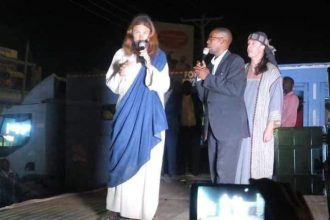A Black LAPD officer was driving a simple Crown Victoria with exempt plates that identified the car as a police cruiser in Beverly Hills. He turned back and spotted the red and blue lights blinking.
According to the officer, who is now a sergeant with the Los Angeles Police Department, “the female officer yelled out, ‘Let me see your hands.'” “I was terrified.”
The officer made his account anonymously in court files because he is frightened of retaliation, but he claims that he immediately called out that he was driving a police car.
“There is no doubt in my mind that I was stopped, and subjected to racial profiling because I am a Black American,” the statement said.
This sworn testimony was recently filed in court to support a class action lawsuit against the Beverly Hills Police Department, which is accused of disproportionately detaining Black individuals in the affluent community, including Los Angeles police officers. The claimed event took place on March 2, 2013.
Attorney Benjamin Crump said during a press conference outside Beverly Hills City Hall on Friday morning, “If Black police can’t be safe in Beverly Hills, God help the average Black citizen.”
Crump, who previously campaigned for the families of George Floyd and Breonna Taylor, filed the action in August 2021 with attorney Bradley Gage. According to the complaint, Beverly Hills police picked out Black people when a task force was formed to combat theft, public inebriation, and burglaries on Rodeo Drive.
Lawyers suspect that between 2019 and 2021, Beverly Hills police targeted hundreds of Black people, detained them, and then released them without charges.
An African-American LAPD officer wants to make a difference; keep reading! He then says that his own division racial profiled him.
In the class action lawsuit, there are 1,086 prospective class members demanding $500 million in damages from the city in order to, as Gage described it, “hit them in the pocket book.”
Gage continued during the press conference, “You can’t get change unless you get their attention.” “It has to stop, and we’re here to put an end to this.”
Crump, Gage, and the LAPD officers made their charges on Friday, which were later disputed by the Beverly Hills Police Department and local authorities.
“The City of Beverly Hills continues to vigorously defend this case and denies the characterizations of the facts and evidence presented today,” a spokesperson for the city said in a statement. “Beverly Hills is an international destination that welcomes visitors from across the country and around the world.”
“The Beverly Hills Police Department’s role is to enforce the law regardless of race,” according to the statement.
Despite the fact that their complaint was filed two years ago, Gage and Crump believe that it has continued to provide evidence of police prejudice and profiling. This includes the testimony of a present and former Los Angeles police officer, both of whom allege they were profiled because of their color, despite the fact that they were clearly police officers.
While Gage and Crump are considering additional legal action against the city in light of more charges of profiling, he stated that the officers’ tales were being utilized as witness statements in the litigation and that they were not plaintiffs because the incidents occurred outside the time frame of the case.
Lawyers Crump and Gage compared the upscale area and the allegations of racial profiling to a “sundown town,” a place where blacks confront physical intimidation or real physical attack.
“It was all an intimidation method to send a dog whistle to Black people straight form Beverly Hills, straight from City Hall,” he said.
Another example concerns a white Beverly Hills Police sergeant who, according to a now-retired LAPD officer and former SWAT squad member, pulled over the officer while he was wearing his uniform and driving a marked LAPD car.
“Can’t you see that I’m wearing a uniform and driving a police car?” The police inquired of the motorist who had pulled him over.
The sergeant allegedly said, “Anyone could have a car with lights.”
In his statement, the former police officer claimed that race was not the major reason for the detention.
“It should be noted that when I was behind the sergeant he could not see my license plate, only the fact that I am African-American,” claimed one of the witnesses. “Thus, the only reason I was pulled over is because I am African American.”
One of the lawsuit’s plaintiffs, Joseph Nett, says that the Beverly Hills Police Department stopped him in 2020 and then played rap music with the N-word and references to killing Black men while he was in the back of a patrol car.
According to Nett, the two officers contemplated killing him as they drove away with him in the car for refusing an illegal search.
“The whole thing was extremely uncomfortable, and it was terrifying,” he said.
According to Gage and Crump, the protests in Los Angeles and Beverly Hills in the aftermath of George Floyd’s murder resulted in hundreds of arrests, not an increase in crime, and therefore the founding of the Beverly Hills Police Department’s Rodeo Drive Task Force. Crump describes the task group as all “theater.”
In a report of the Beverly Hills protests, one sergeant noted that neighborhood people who experienced the Holocaust and the Iranian revolution perceived the nonviolent rallies as a “terrifying reminder of their past.” In 2020, the city was also chastised for prosecuting demonstrators with minor curfew breaches.
Gage fiercely denied the analogy on Friday.
“Why should seeing a Black person cause terror of the residents?” he wanted to know. “That’s the epitome of the practice of police targeting Black people.”
Essential California is a six-day-a-week email newsletter that covers the most recent California news, features, and recommendations from the Los Angeles Times and other sources.














